
Djerba: The Island of Dreams
Djerba, Tunisia's largest island, is a hidden gem in the Mediterranean. Known as the 'Island of Dreams,' it offers a unique blend of history, culture, and natural beauty. With its white sandy beaches, traditional markets, and charming villages, Djerba is a perfect destination for those seeking both relaxation and adventure. Stroll through Houmt Souk, the island's main town, and immerse yourself in its vibrant atmosphere. Marvel at the ancient architecture, visit local artisan shops, and savor delicious Tunisian cuisine at one of the many cafes and restaurants. The town's markets are a treasure trove of spices, textiles, and handcrafted goods. For history enthusiasts, the El Ghriba Synagogue, one of the oldest in the world, is a must-visit. The island is also home to several ancient ruins and the fascinating Guellala Museum, which showcases the rich cultural heritage of Djerba. Don't miss the chance to explore the island's traditional pottery workshops and witness artisans at work. Nature lovers will be enchanted by Djerba's stunning landscapes. From the serene beaches to the lush palm groves, there is no shortage of picturesque spots to enjoy. Take a boat trip to the nearby Flamingo Island or indulge in water sports like windsurfing and scuba diving. With its warm hospitality, diverse attractions, and idyllic setting, Djerba is a destination that promises unforgettable experiences for every traveler.
Local tips in Djerba
- Visit Houmt Souk early in the morning to experience the market at its liveliest and enjoy the freshest produce.
- Dress modestly, especially when visiting religious sites like the El Ghriba Synagogue.
- Rent a bike or scooter to explore the island at your own pace and discover hidden gems off the beaten path.
- Try the local specialty 'Brik,' a delicious deep-fried pastry filled with egg and tuna.
- If visiting during summer, bring plenty of sunscreen and stay hydrated, as temperatures can get quite high.
Neighbourhoods in Djerba
Djerba: The Island of Dreams
Djerba, Tunisia's largest island, is a hidden gem in the Mediterranean. Known as the 'Island of Dreams,' it offers a unique blend of history, culture, and natural beauty. With its white sandy beaches, traditional markets, and charming villages, Djerba is a perfect destination for those seeking both relaxation and adventure. Stroll through Houmt Souk, the island's main town, and immerse yourself in its vibrant atmosphere. Marvel at the ancient architecture, visit local artisan shops, and savor delicious Tunisian cuisine at one of the many cafes and restaurants. The town's markets are a treasure trove of spices, textiles, and handcrafted goods. For history enthusiasts, the El Ghriba Synagogue, one of the oldest in the world, is a must-visit. The island is also home to several ancient ruins and the fascinating Guellala Museum, which showcases the rich cultural heritage of Djerba. Don't miss the chance to explore the island's traditional pottery workshops and witness artisans at work. Nature lovers will be enchanted by Djerba's stunning landscapes. From the serene beaches to the lush palm groves, there is no shortage of picturesque spots to enjoy. Take a boat trip to the nearby Flamingo Island or indulge in water sports like windsurfing and scuba diving. With its warm hospitality, diverse attractions, and idyllic setting, Djerba is a destination that promises unforgettable experiences for every traveler.
When is the best time to go to Djerba?
Iconic landmarks you can’t miss
Djerba Explore Park
Experience the magic of Djerba Explore Park, a family-friendly theme park in Tunisia offering rides, culture, and unique local experiences.
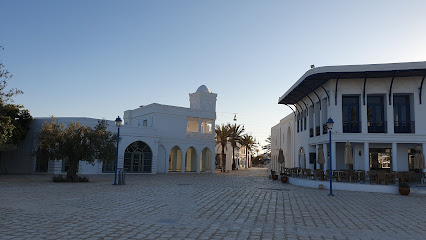
Djerbahood
Experience the unique blend of art and culture at Djerbahood, the vibrant open-air museum on Djerba Island, Tunisia.
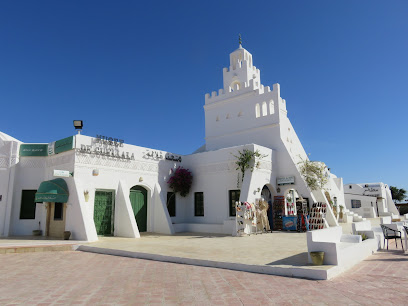
Guellala Museum
Uncover the cultural treasures of Djerba at Guellala Museum, where history, art, and tradition come alive in a stunning setting.
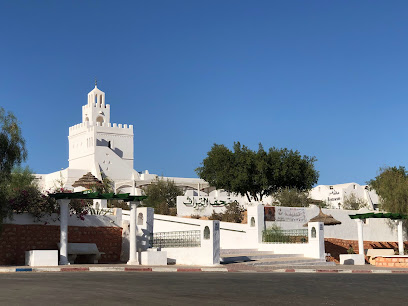
TUI BLUE Palm Beach Palace
Experience the ultimate luxury at TUI BLUE Palm Beach Palace, where stunning Mediterranean views and exceptional amenities await you in Tunisia.

Radisson Blu Palace Resort & Thalasso, Djerba
Experience luxury and relaxation at Radisson Blu Palace Resort & Thalasso, Djerba - your ultimate Mediterranean escape.
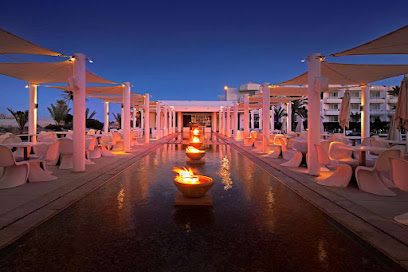
Sentido Djerba Beach
Experience luxury and tranquility at Sentido Djerba Beach, a stunning resort on Tunisia's scenic Djerba Island, perfect for relaxation and adventure.
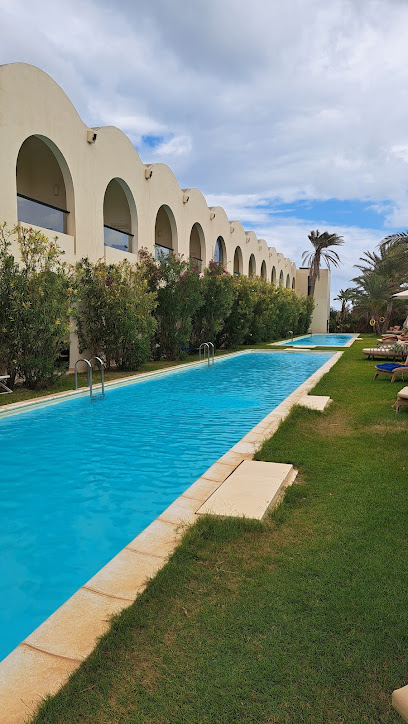
Djerba Holiday Beach
Experience the tranquil beauty and luxury of Djerba Holiday Beach, your ultimate seaside retreat on the stunning island of Djerba.

El Ghriba synagogue
Discover El Ghriba Synagogue, a historical gem in Tunisia, showcasing stunning architecture and rich Jewish heritage.
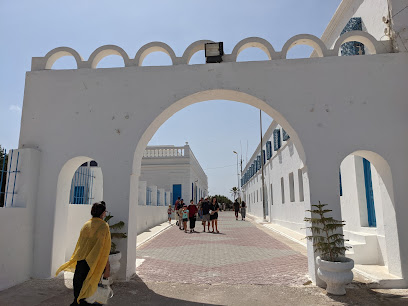
Gazi Mustapha Tower
Discover the historical essence of Djerba at Gazi Mustapha Tower, a stunning landmark that narrates Tunisia's rich cultural heritage.
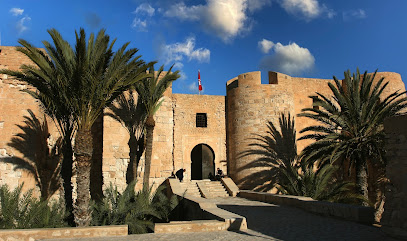
Grand Casino de Djerba
Discover the vibrant gaming and entertainment experience at Grand Casino de Djerba, the ultimate hotspot on the enchanting island of Djerba in Tunisia.
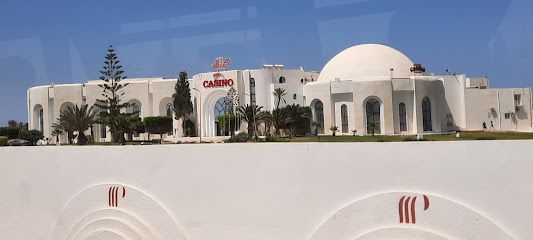
Dar Jilani
Discover the vibrant art scene at Dar Jilani in Fatou, Tunisia, where contemporary and traditional artworks come together in a cultural celebration.
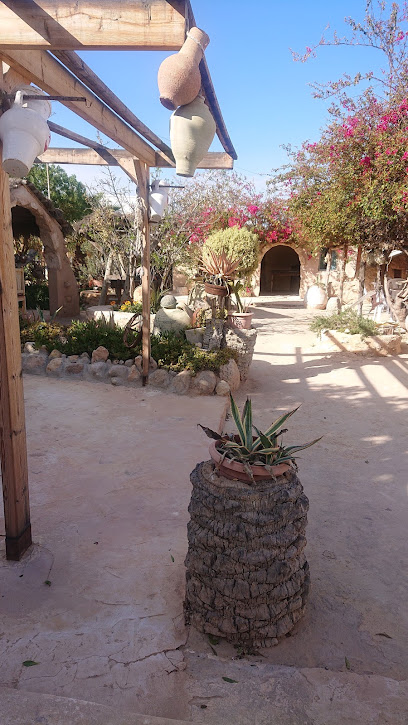
Lalla Hadria Museum
Immerse yourself in the rich heritage of Djerba at the Lalla Hadria Museum, where history and culture come to life through captivating exhibits.
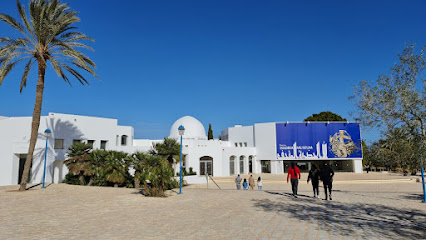
Sidi Jemour Mosque
Explore the architectural beauty and serene atmosphere of Sidi Jemour Mosque in Groua, a must-visit spiritual landmark in Tunisia.
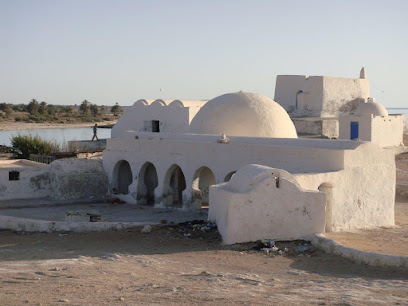
Djerba Traditional Heritage Museum
Discover the heart of Djerba's culture and history at the Traditional Heritage Museum, a must-see destination on your Tunisian adventure.
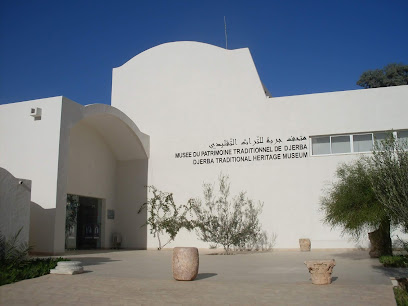
Greater Flamingo Island
Explore the beauty and serenity of Greater Flamingo Island in Tunisia, a haven for wildlife enthusiasts and nature lovers alike.
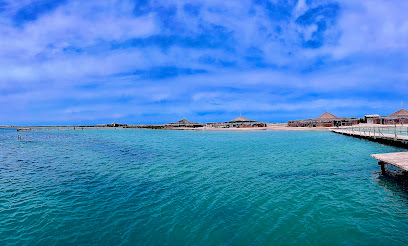
Unmissable attractions to see
Djerba Crocodile Farm
Discover the wonders of the Djerba Crocodile Farm, a unique wildlife experience in Djerba Midun, showcasing fascinating crocodiles and exotic animals.
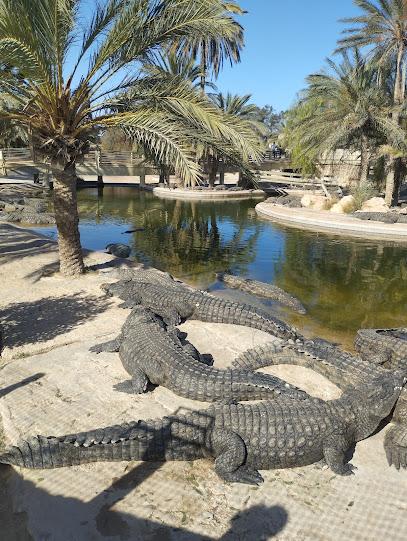
Djerba Explore Park
Explore the magic of Djerba at Djerba Explore Park, a captivating theme park filled with adventure, culture, and unforgettable experiences.
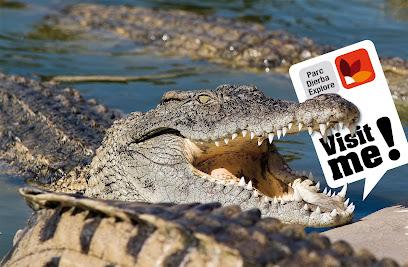
Djerbahood
Explore Djerbahood, Tunisia's vibrant open-air museum featuring stunning street art, cultural heritage, and a unique artistic journey for every traveler.
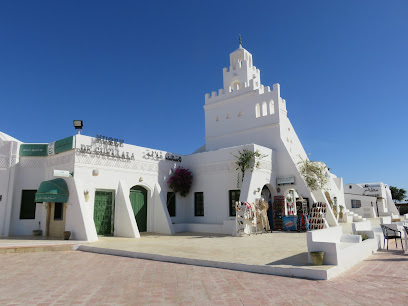
Guellala Museum
Explore the rich cultural heritage of Djerba at the Guellala Museum, a must-visit destination for art lovers and history enthusiasts alike.
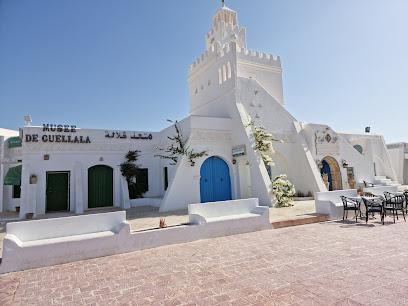
Grand Casino de Djerba
Discover the excitement of Grand Casino de Djerba, where thrilling games, live entertainment, and exquisite dining create an unforgettable experience.
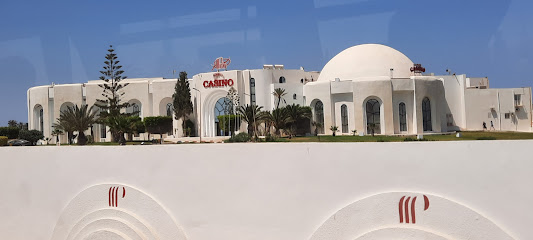
Djerba Golf Resort & Spa
Experience unparalleled luxury and relaxation at Djerba Golf Resort & Spa, where stunning landscapes meet world-class amenities in beautiful Tunisia.
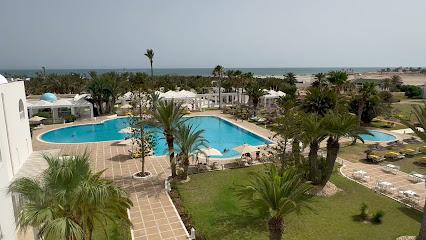
Aqua Park Pirate
Experience the ultimate water adventure at Aqua Park Pirate in Djerba Midun, where fun meets relaxation for the whole family.
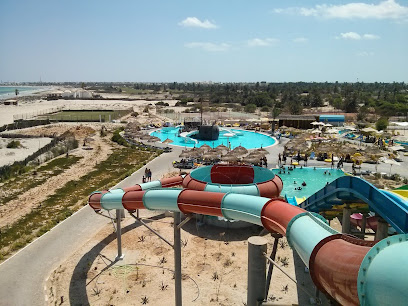
بح بح
Discover endless fun and excitement at BHBH Amusement Park in Houmt Souk, a premier destination for families and thrill-seekers alike.
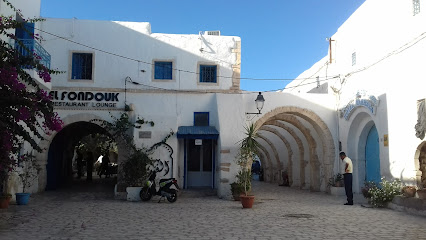
Marina Djerba
Explore Marina Djerba: A picturesque tourist attraction in Houmt Souk, where stunning coastal views meet vibrant local culture and thrilling water activities.
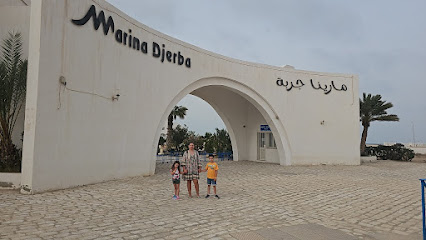
Djerba Traditional Heritage Museum
Explore the vibrant cultural heritage of Djerba at the Djerba Traditional Heritage Museum, showcasing traditional crafts and the island's rich history.
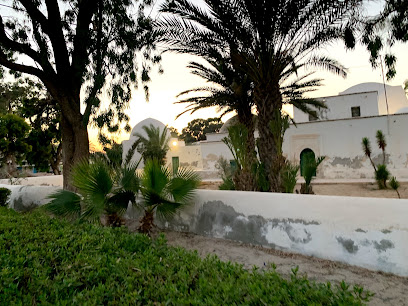
Greater Flamingo Island
Explore the scenic beauty and vibrant wildlife of Greater Flamingo Island, a must-visit tropical paradise for nature lovers and adventure seekers.
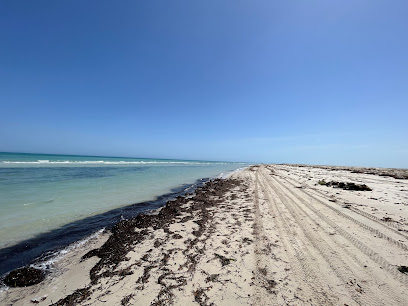
Water Sports - B20
Discover thrilling water sports and beautiful beaches at Water Sports - B20 in Djerba, the ideal destination for adventure seekers and sun lovers alike.
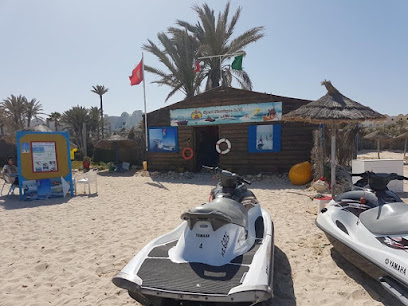
Ranch Adada Djerba
Unleash your adventurous spirit at Ranch Adada Djerba, where horseback riding meets the stunning landscapes of Tunisia's beautiful Djerba island.
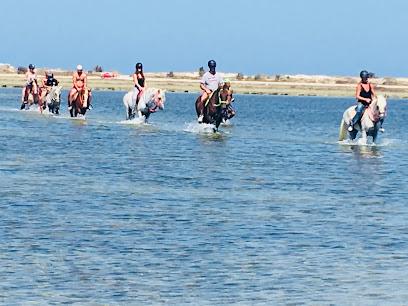
Borj El Kastil Fortress
Experience the historical magnificence and stunning vistas of Borj El Kastil Fortress, a captivating landmark in Ghardaïa, Tunisia.
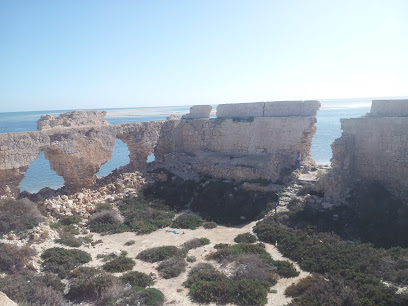
Djerba Explore Village
Explore the rich heritage and vibrant culture of Djerba at Djerba Explore Village, home to crocodiles and traditional craftsmanship.
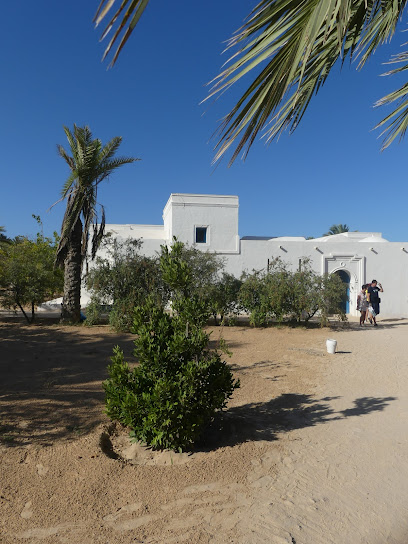
Essential places to dine
El Fondouk
Discover culinary delights at El Fondouk in Houmt Souk - where tradition meets flavor in every dish.
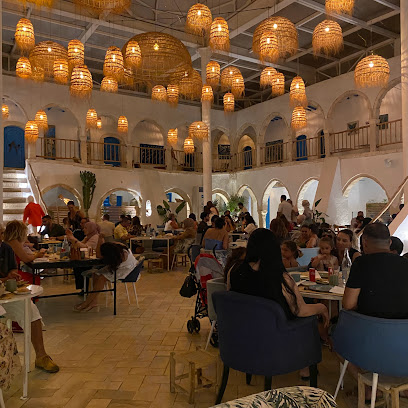
Restaurant chez Moktar-مطعم المختار
Experience authentic Tunisian flavors at Restaurant Chez Moktar in Djerba Midun - a culinary gem blending tradition and taste.
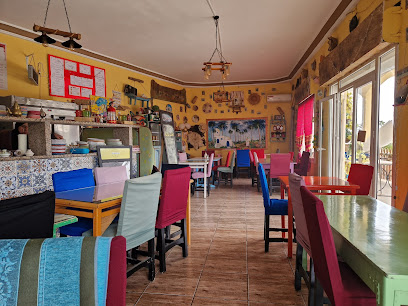
Restaurant Haroun
Experience authentic Tunisian cuisine at Restaurant Haroun in Houmt Souk—where every meal tells a story.
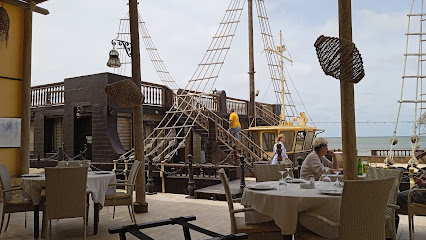
Restaurant Baccar
Experience authentic Tunisian cuisine at Restaurant Baccar in Houmt Souk – where tradition meets taste in a delightful setting.
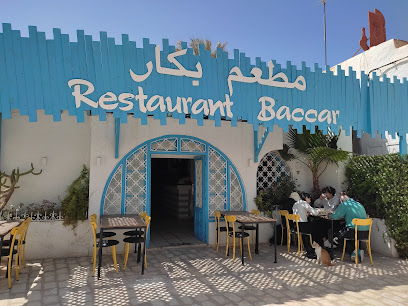
Palm Djerba Café Restaurant
Experience authentic Tunisian cuisine at Palm Djerba Café Restaurant in Midoun – where every meal tells a story.
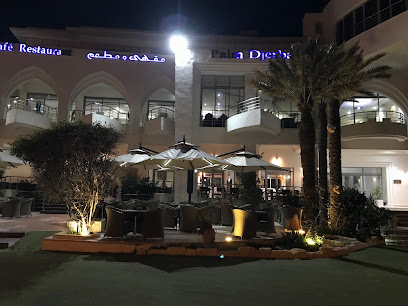
مطعم شوشو
Experience authentic Tunisian flavors at مطعم شوشو in Djerba Midun – where every meal tells a story.
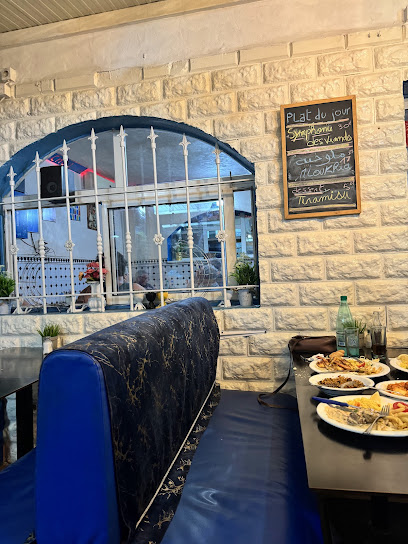
Restaurant Lella Hadhria
Experience authentic Tunisian cuisine at Restaurant Lella Hadhria in Midoune - a culinary delight not to be missed!
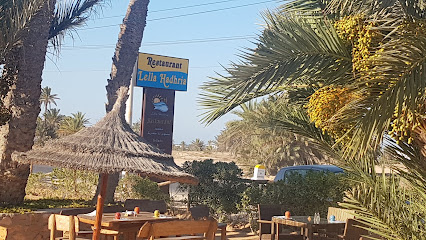
Sunset beach djerba
Discover Sunset Beach Djerba: A serene escape with stunning sunsets and delightful Tunisian cuisine.
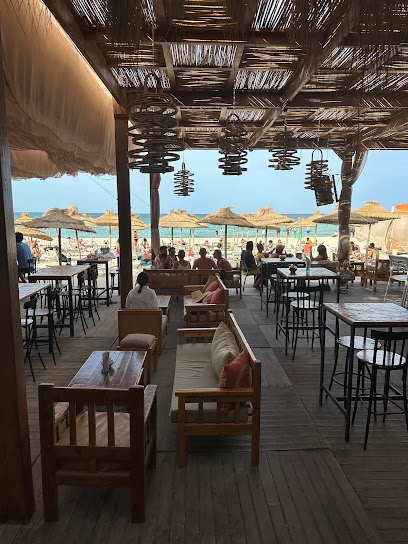
Restaurant De L'île
Discover exquisite Mediterranean cuisine at Restaurant De L'île in Houmt Souk – where every meal tells a story.
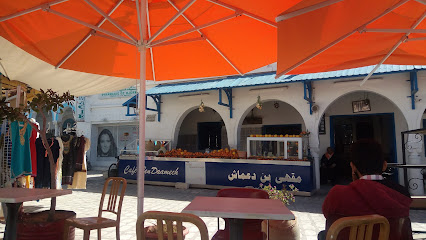
Restaurant Pappagallo
Discover the authentic tastes of Tunisia at Restaurant Pappagallo in Houmt Souk - where every meal tells a story.
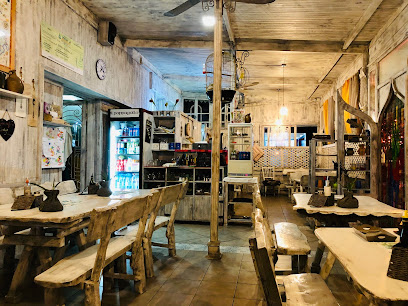
Restaurant Djerba Nova
Discover authentic Tunisian cuisine at Restaurant Djerba Nova in Mezraia – a delightful dining experience awaits every traveler.
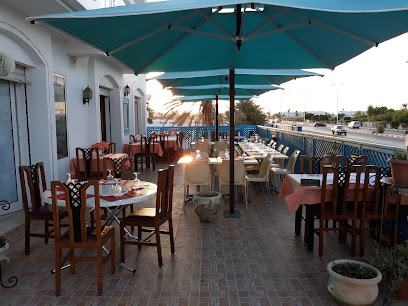
Al_ATIK RESTAURANT
Discover family-friendly dining at Al_ATIK RESTAURANT in Houmt Souk—savor authentic Tunisian flavors in a warm and welcoming atmosphere.
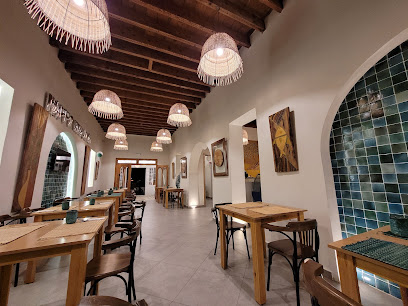
Kool Food
Experience authentic Tunisian flavors at Kool Food in Houmt Souk, where every dish tells a story of local tradition and freshness.
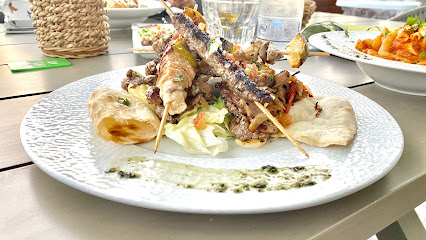
Restaurant Fatroucha
Experience authentic Tunisian flavors at Restaurant Fatroucha in Djerba Midun - where tradition meets taste.
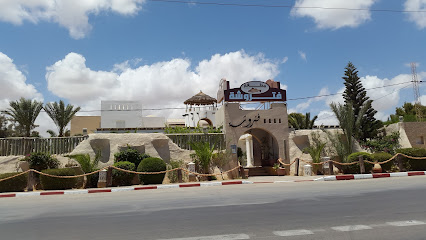
Café restaurant Santorini
Experience culinary delights at Café Restaurant Santorini in Djerba, where stunning sea views meet exquisite Mediterranean flavors.
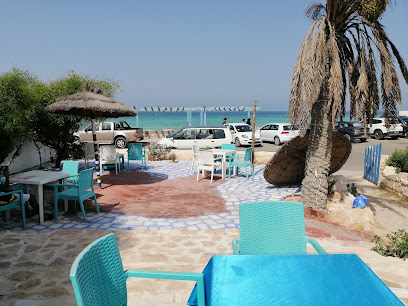
Markets, malls and hidden boutiques
Bourgo Mall
Experience the best of shopping, dining, and entertainment at Bourgo Mall, Djerba's premier shopping destination.
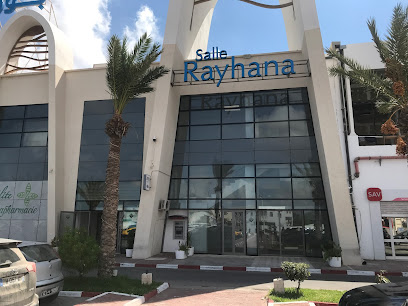
Géant Djerba
Explore the vibrant offerings at Géant Djerba, your one-stop hypermarket for local delights and everyday essentials in Djerba, Tunisia.
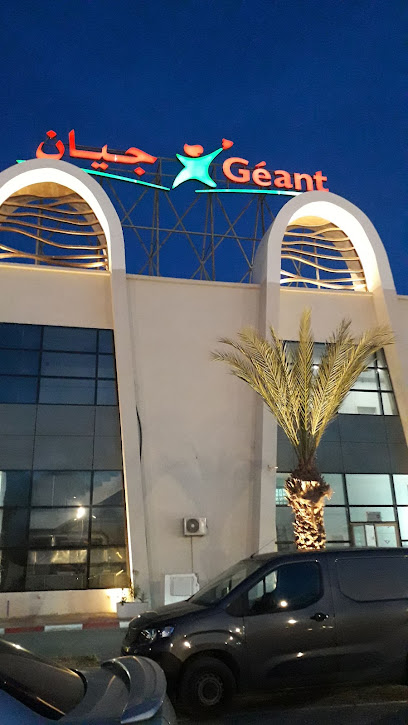
Djerba Mall
Explore Djerba Mall, a premier shopping destination offering a blend of local and international brands, delightful dining, and vibrant atmosphere.
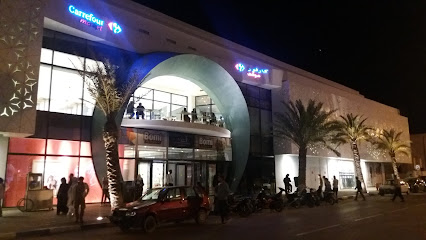
Adam Shopping Center
Explore the Adam Shopping Center in Djerba Midun, a vibrant shopping hub filled with unique gifts and local treasures.
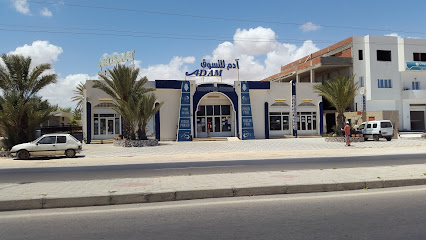
La Gazelle Shopping Center& vape store
Discover La Gazelle Shopping Center in Djerba: A vibrant shopping hub with local treasures, delicious dining, and an inviting atmosphere for all tourists.
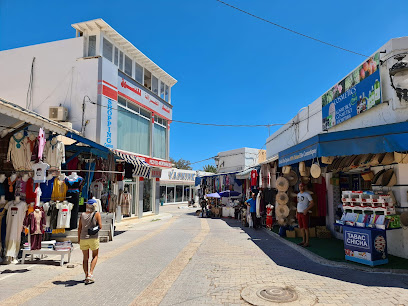
Aziz Shopping Center
Explore the lively Aziz Shopping Center in Djerba Midun for a unique shopping experience blending local culture and modern retail.
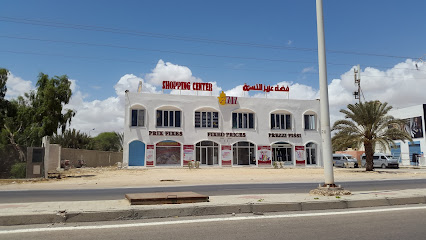
Djerba Shopping
Discover the charm of Djerba Shopping, where local handicrafts and vibrant culture come to life in the heart of Houmt Souk.
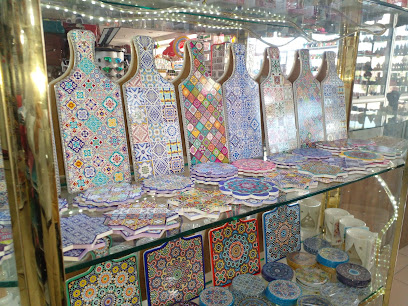
Saïd Shopping Center
Experience the vibrant shopping scene at Saïd Shopping Center in Djerba Midun, where local charm meets international retail.
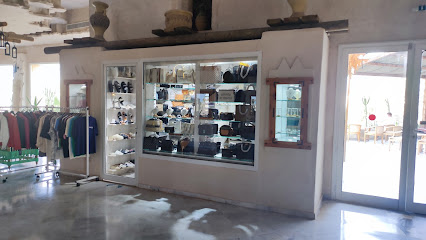
Bazaar Houmt Souk
Explore the vibrant Bazaar Houmt Souk in Djerba for an authentic shopping experience filled with local crafts, spices, and delicious Tunisian treats.
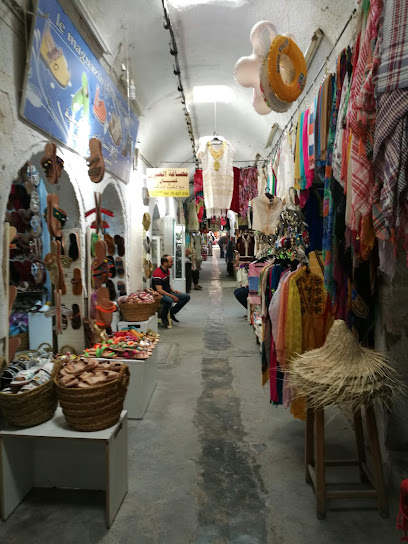
Innovation Naima
Explore a unique collection of contemporary and traditional furniture at Innovation Naima in Djerba, where craftsmanship meets cultural heritage.
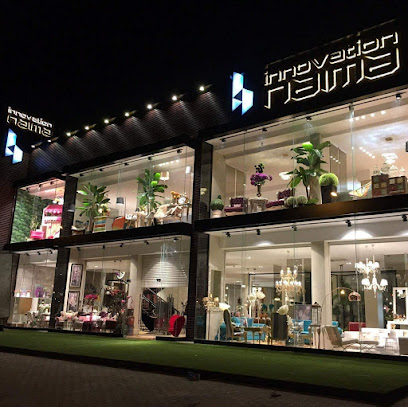
Artisanette shopping
Discover the artistry of Tunisia at Artisanette Shopping in Djerba, where unique handicrafts and local gifts await every traveler.
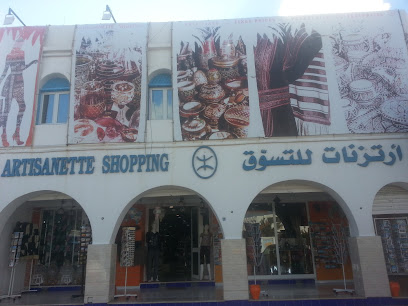
chichkhan store
Explore the vibrant Chichkhan Store in Djerba for unique clothing and handicrafts, a perfect reflection of Tunisia's rich culture.
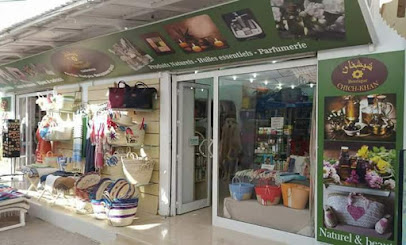
Aries Djerba - Chez MARIA
Explore the artistic essence of Djerba at Aries Djerba - Chez MARIA, a charming handicraft shop in the heart of Houmt Souk.

Dar El Fan Djerba
Discover Djerba's artistic soul at Dar El Fan Djerba, where local craftsmanship meets unique gifts and vibrant culture.
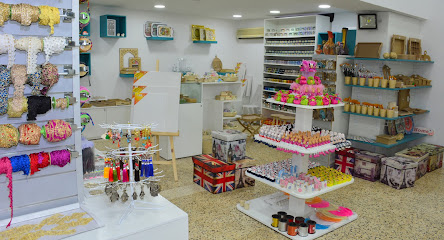
Djerba Bazar
Explore Djerba Bazar, a vibrant shopping destination in Mezraia, where local crafts, delicious food, and rich culture await every visitor.
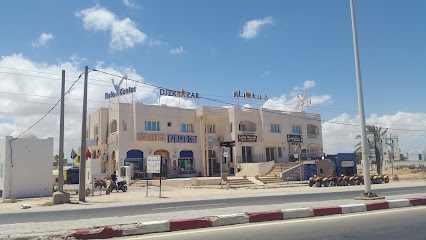
Essential bars & hidden hideouts
Sunset beach djerba
Experience exquisite dining with stunning sunset views at Sunset Beach Djerba, where every meal is a celebration of local flavors and coastal beauty.
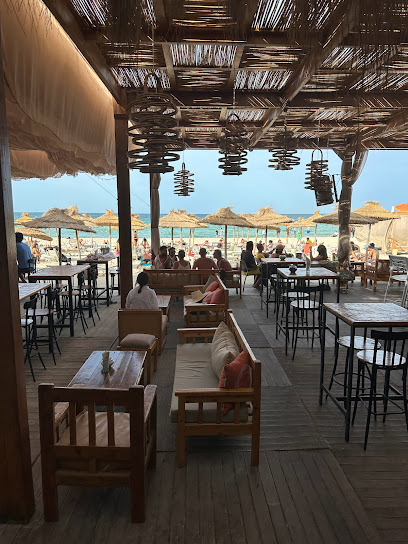
Club 66 & Restaurant Neptune
Discover the vibrant nightlife and delectable cuisine at Club 66 & Restaurant Neptune, the ultimate destination in Djerba Midun.
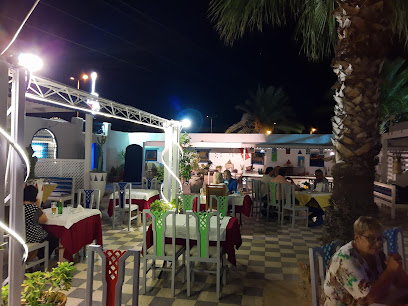
Plaza Sea Lounge Djerba
Discover the vibrant ambiance and exquisite drinks at Plaza Sea Lounge Djerba, your perfect escape in the heart of Djerba's tourist zone.
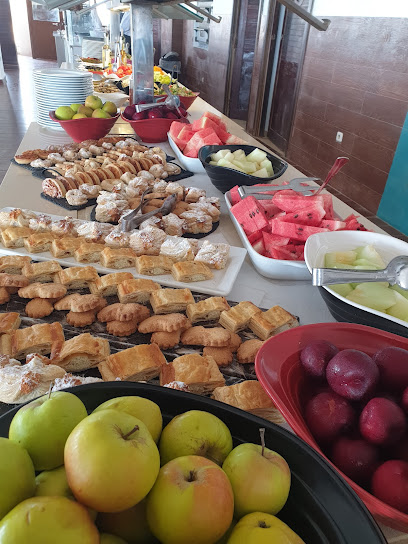
Sweety beach club
Experience the vibrant flavors of Mediterranean tapas at Sweety Beach Club, a coastal gem in Mezraia with stunning beach views.
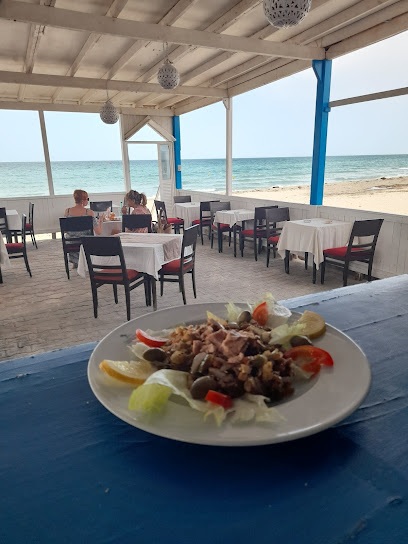
Coco Loco
Experience the vibrant nightlife at Coco Loco, a lively bar in Djerba offering refreshing drinks and a fun atmosphere for travelers.
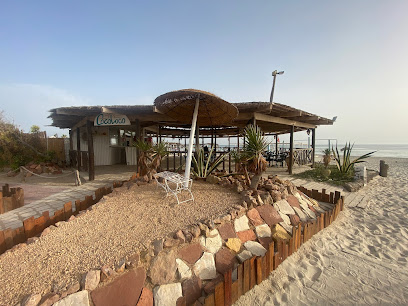
JOBI -DJERBA
Discover the tranquil ambiance and delightful offerings at JOBI -DJERBA, a perfect lounge retreat in Djerba Midun.
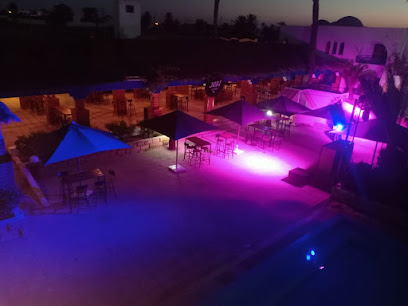
Zanzibar
Discover the enchanting allure of Zanzibar, where pristine beaches, rich culture, and vibrant nightlife converge in a tropical paradise.
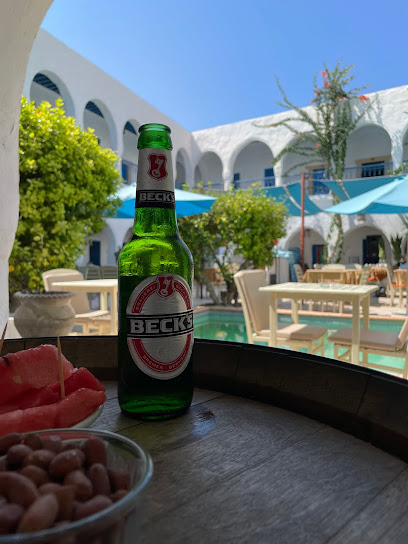
DOMINO'S PUB
Experience the vibrant lounge atmosphere at Domino's Pub in Djerba, where relaxation meets local culture in a stylish setting.

gooal.tn
Join the excitement at Djerba's premier sports bar, where local culture meets thrilling sports action in a vibrant atmosphere.
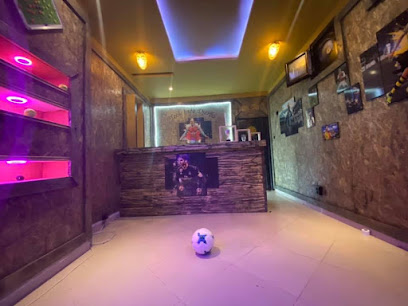
SPORTING BEACH
Discover the serene charm of Sporting Beach, a bar and lunch restaurant in Djerba Midun offering delightful meals and stunning coastal views.
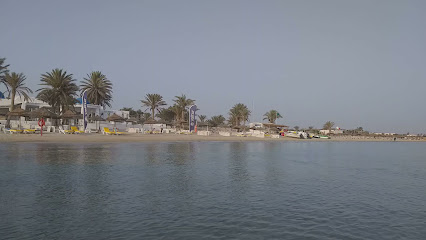
محل خمور
Experience the vibrant social scene at محل خمور, a must-visit bar in Djerba Midun for refreshing drinks and local charm.
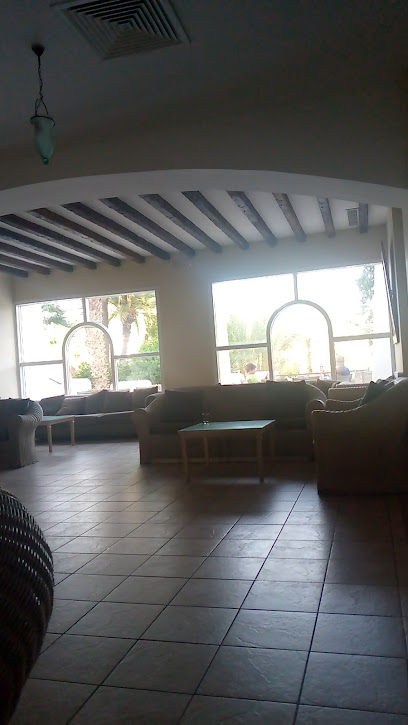
Coco bar
Experience the vibrant atmosphere and tropical flavors at Coco Bar, a must-visit destination in Djerba Midun's nightlife.
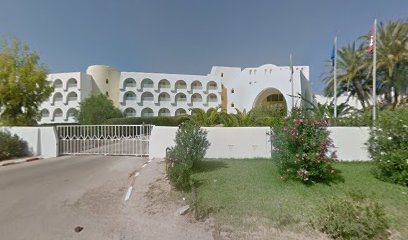
Le Squat Sun Club Djerba
Experience the vibrant nightlife and local flavors at Le Squat Sun Club Djerba, a hidden gem in the heart of Djerba’s coastal paradise.
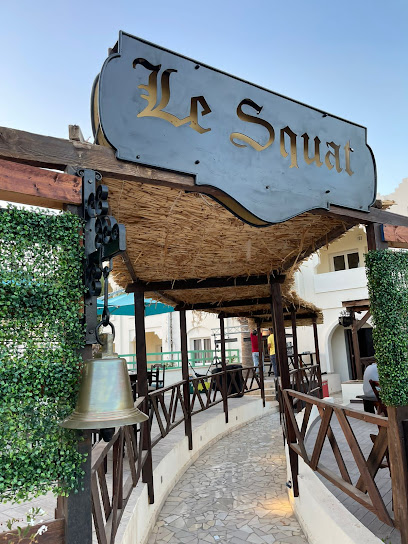
Buzzles Club Djerba
Discover Buzzles Club Djerba, where nightlife meets culinary delights in a vibrant atmosphere, perfect for unwinding and socializing.
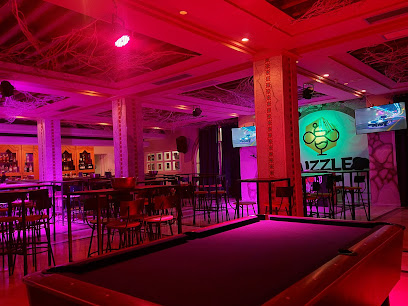
Local Phrases
-
- Helloسلام
[salam] - Goodbyeوداعا
[wada'an] - Yesنعم
[naam] - Noلا
[laa] - Please/You're welcomeمن فضلك
[min fadlik] - Thank youشكرا
[shukran] - Excuse me/Sorryعذرا
[udhur] - How are you?كيف حالك؟
[kayfa halik?] - Fine. And you?بخير. وأنت؟
[bikhayr. wa anta?] - Do you speak English?هل تتكلم الإنجليزية؟
[hal tatakallam al'injlizia?] - I don't understandلا أفهم
[laa afham]
- Helloسلام
-
- I'd like to see the menu, pleaseأريد أن أرى القائمة، من فضلك
[uridu an ara alqaima, min fadlik] - I don't eat meatأنا لا آكل اللحم
[ana la akul allahm] - Cheers!صحتين
[sahatayn] - I would like to pay, pleaseأريد أن أدفع، من فضلك
[uridu an adfa, min fadlik]
- I'd like to see the menu, pleaseأريد أن أرى القائمة، من فضلك
-
- Help!النجدة!
[annajda!] - Go away!انصرف!
[insarif!] - Call the Police!اتصل بالشرطة!
[iatisil bilshurta!] - Call a doctor!اتصل بالطبيب!
[iatisil bittibib!] - I'm lostلقد ضللت
[laqad dalalt] - I'm illأنا مريض
[ana mariid]
- Help!النجدة!
-
- I'd like to buy...أريد أن أشتري...
[uridu an ashtari...] - I'm just lookingأنا فقط أتطلع
[ana faqat atatallu'] - How much is it?كم سعره؟
[kam sa'ruh?] - That's too expensiveهذا غالي جدا
[hatha ghali jiddan] - Can you lower the price?هل يمكنك خفض السعر؟
[hal yumkinuka khafd alsu'ru?]
- I'd like to buy...أريد أن أشتري...
-
- What time is it?كم الساعة؟
[kam alsaa'a?] - It's one o'clockالساعة الواحدة
[alsaa'atul waahidah] - Half past (10)العاشرة والنصف
[al'ashirah wan nisf] - Morningالصباح
[assabah] - Afternoonالظهر
[adhdhuhur] - Eveningالمساء
[almasa'] - Yesterdayأمس
[ams] - Todayاليوم
[alyawm] - Tomorrowغدا
[ghadan] - 1واحد
[wahid] - 2اثنان
[ithnan] - 3ثلاثة
[thalatha] - 4أربعة
[arba'a] - 5خمسة
[khamsa] - 6ستة
[sitta] - 7سبعة
[sab'a] - 8ثمانية
[thamania] - 9تسعة
[tasi'a] - 10عشرة
[ashara]
- What time is it?كم الساعة؟
-
- Where's a/the...?أين ال...؟
[ayn al...?] - What's the address?ما هو العنوان؟
[ma huwa al'unnwan?] - Can you show me (on the map)?هل يمكنك أن تريني (على الخريطة)؟
[hal yumkinuka an turini (ala alkhariitah)?] - When's the next (bus)?متى القادم (الحافلة)؟
[mata alqadim (alhafilah)?] - A ticket (to ....)تذكرة (إلى ...)
[tadhkirah (ila ...)]
- Where's a/the...?أين ال...؟
History of Djerba
-
Djerba, known as the 'Island of the Lotus-Eaters' in Homer's Odyssey, has a history that dates back to ancient times. The island was first settled by the Berbers and later became a prominent Phoenician trading post. Evidence of this early history can be seen in the ruins of Meninx, an ancient Phoenician and Roman settlement.
-
Under Roman rule, Djerba flourished as a vital commercial hub. The island was known for its production of purple dye, a luxury item in the ancient world. Roman influence is still evident today, particularly in the archaeological site of Meninx which features remnants of Roman baths, temples, and a theatre.
-
Djerba came under Islamic influence in the 7th century during the early Islamic conquests. The island became an important center for the Ibadi sect of Islam, a branch distinct from Sunni and Shia Islam. The oldest mosque in North Africa, the Mosque of Sidi Jmour, is located here and remains a significant religious site.
-
In the 16th century, Djerba became a haven for pirates and corsairs who preyed on Mediterranean shipping routes. The most famous of these was Dragut, an Ottoman admiral and pirate. The island’s strategic location made it an ideal base for piracy, leading to numerous conflicts with European powers.
-
One of the most significant historical events on the island was the Battle of Djerba in 1560. This naval battle saw the Ottoman fleet defeat a combined force of Spanish, Venetian, and Papal States ships. The victory solidified Ottoman control over the island and had lasting implications for the balance of power in the Mediterranean.
-
Djerba is home to one of the oldest Jewish communities in the world. The El Ghriba Synagogue, founded over 2,500 years ago, is a testament to this long-standing heritage. The synagogue is a place of pilgrimage for Jews from around the world, especially during the annual Lag BaOmer festival.
-
In the late 19th and early 20th centuries, Djerba fell under French control as part of the French Protectorate of Tunisia. This period brought modernization to the island, including infrastructure improvements and educational reforms. However, it also led to tensions between the local population and colonial authorities.
-
Following Tunisia's independence from France in 1956, Djerba underwent significant development. The tourism industry began to flourish, attracting visitors with its unique blend of history, culture, and natural beauty. Today, Djerba is known for its luxurious resorts, traditional markets, and rich cultural heritage.
Djerba Essentials
-
Djerba is accessible via the Djerba-Zarzis International Airport (DJE), which is located about 9 kilometers from the island's main town, Houmt Souk. The airport receives flights from major cities in Europe, North Africa, and the Middle East. Alternatively, you can reach Djerba by road from mainland Tunisia via the El Kantara causeway or by ferry from the city of Ajim.
-
Getting around Djerba is fairly straightforward. Taxis are widely available and relatively inexpensive. There are also shared taxis, known as 'louages,' which operate on fixed routes and are a cost-effective option for traveling between towns. For a more local experience, consider renting a bicycle or scooter. Car rentals are also available, but driving can be challenging due to local traffic customs.
-
The official currency in Tunisia is the Tunisian Dinar (TND). Credit cards are widely accepted in hotels, larger restaurants, and shops, but it is advisable to carry cash for smaller establishments and markets. ATMs are available throughout Djerba, especially in tourist areas like Houmt Souk and Midoun. It is recommended to exchange some money at the airport or in major cities before arriving on the island.
-
Djerba is generally a safe destination for tourists. However, it is advisable to exercise standard precautions. Avoid walking alone at night in poorly lit areas and keep an eye on your belongings in crowded places. The neighborhoods of Houmt Souk and Midoun are popular with tourists and generally safe, but it's always best to stay vigilant. Be cautious in more remote areas, as petty crimes like pickpocketing can occur.
-
In case of an emergency, dial 197 for police, 190 for medical assistance, and 198 for the fire department. The main hospital in Djerba is the Sadok Mokaddem Hospital in Houmt Souk, which offers emergency medical services. Pharmacies are also available for minor health issues. It is advisable to have travel insurance that covers medical emergencies.
-
Fashion: Do dress modestly, especially when visiting religious sites. Avoid wearing revealing clothing. Religion: Do respect local customs and traditions. Always cover your head when entering mosques and other religious sites. Public Transport: Do be respectful and give up your seat to elderly passengers. Don't eat or drink on public transport. Greetings: Do greet people with a handshake. A smile and a nod of the head are also signs of respect. Eating & Drinking: Do try local delicacies and accept food offerings graciously. Don't refuse hospitality, as it is considered impolite.
-
To experience Djerba like a local, visit the weekly markets (souks) in Houmt Souk and Midoun, where you can buy fresh produce, spices, and traditional crafts. Engage with locals, as they are often friendly and willing to share stories about the island's history and culture. Don't miss visiting the El Ghriba Synagogue, one of the oldest synagogues in the world, and the Djerbahood street art village in Erriadh. For a unique experience, take a ride on a traditional fishing boat or visit the Guellala Museum to learn about the island's pottery-making traditions.
Trending Landmark in Djerba
-
Djerba Explore Park
-
Djerbahood
-
Guellala Museum
-
TUI BLUE Palm Beach Palace
-
Radisson Blu Palace Resort & Thalasso, Djerba
-
Sentido Djerba Beach
-
Djerba Holiday Beach
-
El Ghriba synagogue
-
Gazi Mustapha Tower
-
Grand Casino de Djerba
-
Dar Jilani
-
Lalla Hadria Museum
-
Sidi Jemour Mosque
-
Djerba Traditional Heritage Museum
-
Greater Flamingo Island
Nearby Cities to Djerba
-
Things To Do in Sfax
-
Things To Do in Sabratha
-
Things To Do in Monastir
-
Things To Do in Sousse
-
Things To Do in Tripoli
-
Things To Do in Tozeur
-
Things To Do in Hammamet
-
Things To Do in Tunis
-
Things To Do in Leptis Magna
-
Things To Do in Zliten
-
Things To Do in Xlendi
-
Things To Do in Bizerte
-
Things To Do in Xewkija
-
Things To Do in Gozo
-
Things To Do in Mgarr















